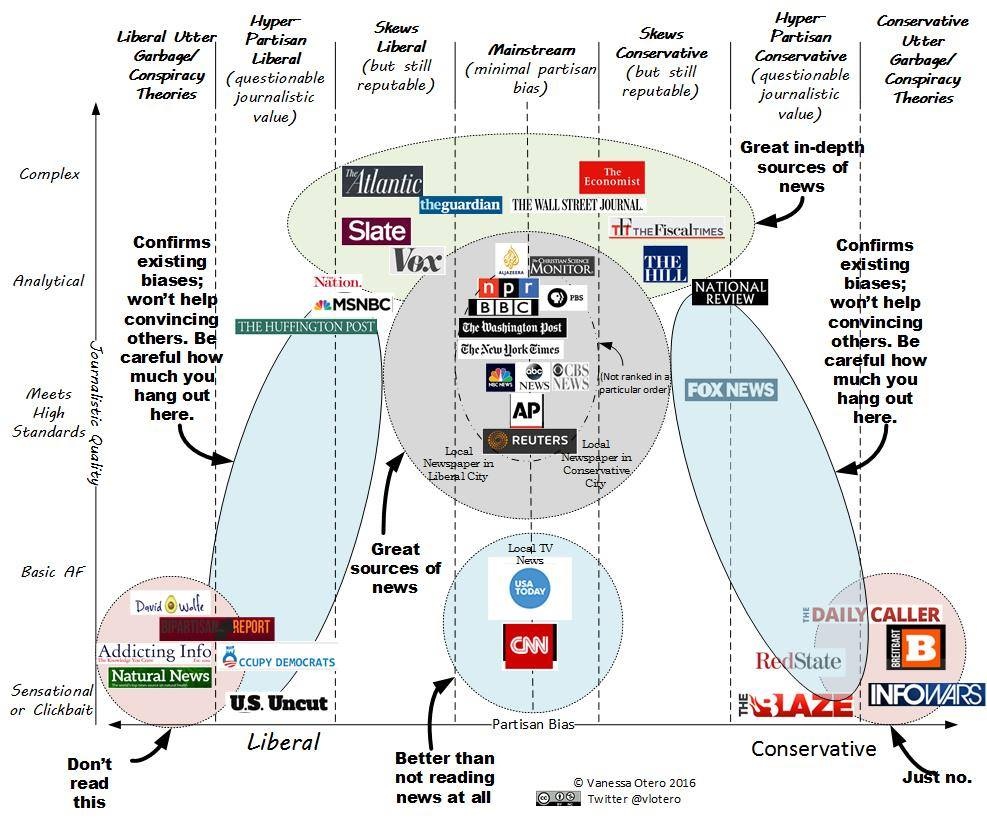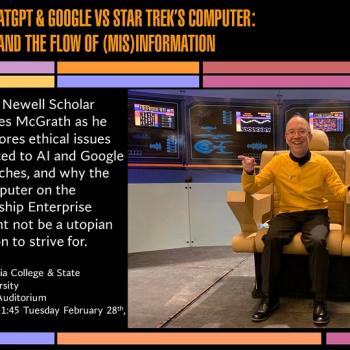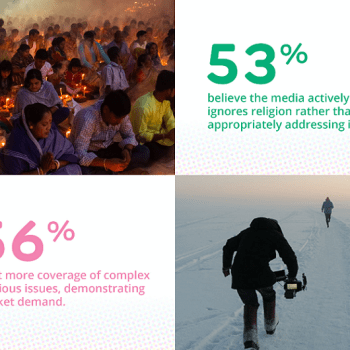Dawn Trautman shared this image on Facebook. Does it match your perception of these sources? If not, do you assume that the issue is with the chart, or with your perception?

Also, does the infographic itself convey the message that being a political centrist is more correct than leaning to the right or left? Isn’t that assumption one that deserves to be challenged? And indeed, isn’t the fact that some centrist sources are criticized for sensationalism making precisely this point? Moreover, might it not be that among sources which are well-informed, thoughtful, and open to critical investigation of their own viewpoint as well as that of others, the truth on any given matter may turn up somewhere around the left, center, or right? Or perhaps we should expect that, when there is a clear answer that can be given rather than just an opinion or value judgment, we should expect to find agreement across the spectrum at the top of the infographic?
Discussing individual news sources and their biases is just one aspect of information literacy. See the ALA framework for information literacy for more information, which Bucknell University has turned into a series of posters. More detailed infographics exploring information literacy can be found here. Many university libguides also provide useful information on this topic. Of course, many people experience “library anxiety,” fearing that their ignorance will be exposed and they will look foolish if they seek assistance. But in an era of fake news and fearmongering, those who suffer from this anxiety need to face that fear, and to learn that the consequences of not informing oneself are much scarier.
Of related interest, Chris Bateman’s book Wikipedia Knows Nothing is now available, and can be purchased or downloaded for free via his website.













